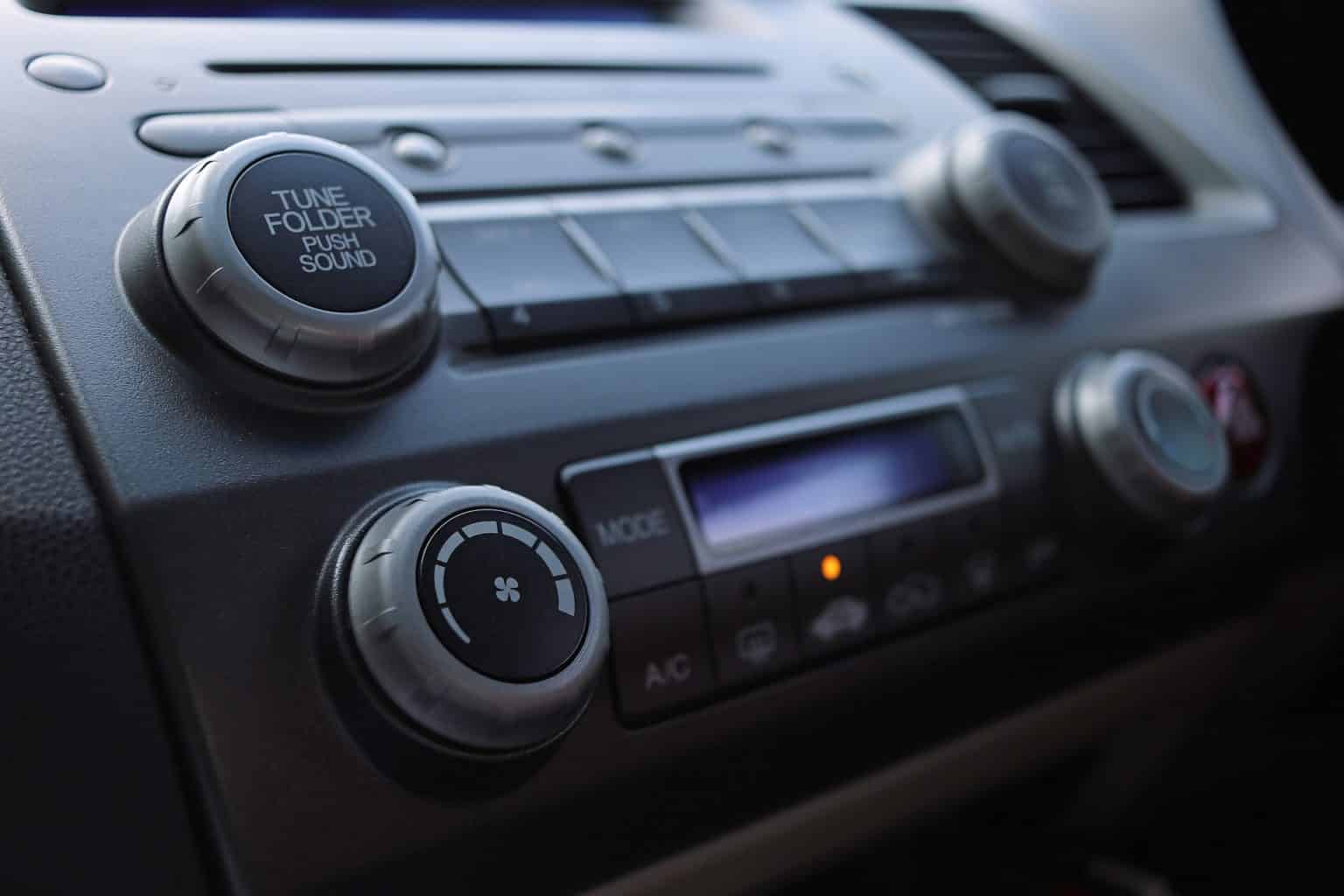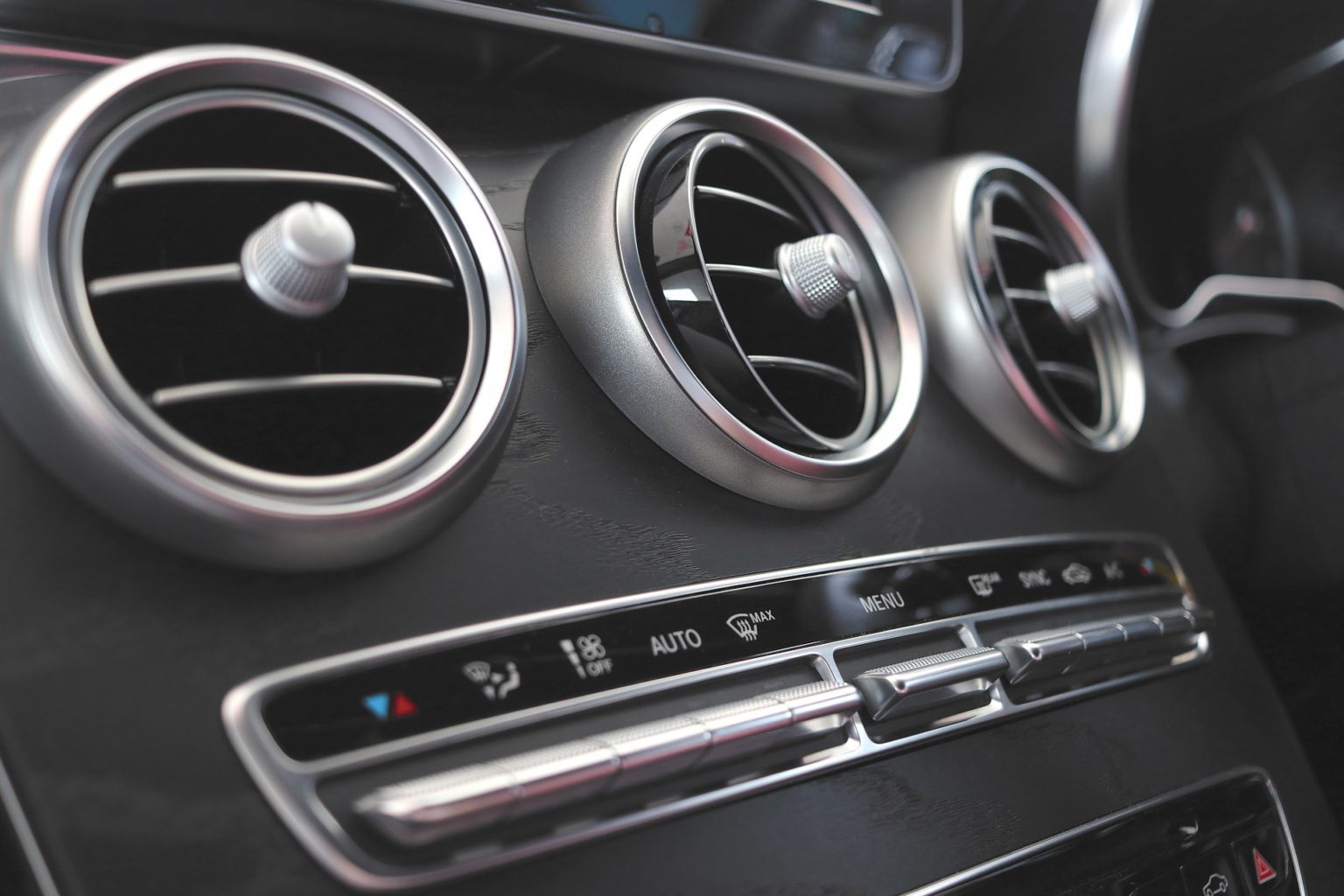
How To Check Freon In Car?
When it comes to car maintenance, checking the freon levels is one of the most important things you can do.
Low levels of freon can cause all sorts of problems with your car, from decreased fuel efficiency to a complete breakdown.
In this blog post, we will show you how to check freon in the car and how to fix any problems that might arise.
How To Check Freon In Car? 10 Major Signs To Identify
Let us take a look at the seven major signs of checking freon in the car.
Sign#1: AC Blows Off Warm Air
If you notice that your car’s AC is blowing off warm air, it is one of the first signs that you might have low levels of freon.
The AC blows off warm air because the compressor is not able to compress the refrigerant gas properly.
This results in less cooling and, as a result, warmer air.

Sign # Two: Ice Build-Up On The AC Hoses
Another sign that you might be low on freon is if you notice ice build-up on the AC hoses.
This is usually caused by the compressor not being able to compress the refrigerant gas properly, which results in condensation and ice build-up.
Sign # Three: The AC Clutch Is Not Engaging
If you notice that the AC clutch is not engaging, it could be another sign of low freon levels.
The AC clutch is responsible for engaging the compressor when the AC is turned on.
If the clutch is not engaging, it could be because the compressor is not receiving enough pressure from the refrigerant gas.
Sign # Four: The Car Is Overheating
If you notice that your car is overheating, it could be another sign of low freon levels.
When the compressor is not able to compress the refrigerant gas properly, it causes the car to overheat.
Sign # Five: The AC Is Not Blowing Cold Air
If you notice that your AC is not blowing cold air, it could be another sign of low freon levels.
This is because the compressor is not able to compress the refrigerant gas properly, which results in less cooling.
Sign # Six: The AC Smells Bad
If you notice that your AC smells bad, it could be another sign of low freon levels.
This is because the compressor is not able to compress the refrigerant gas properly, which results in a build-up of pressure and a bad smell.
Sign # Seven: The Car Is Not Starting
If you notice that your car is not starting, it could be another sign of low freon levels.
This is because the compressor is not able to compress the refrigerant gas properly, which results in a loss of power and the car not being able to start.
Sign # Eight: The Car Is Stalling
If you notice that your car is stalling, it could be another sign of low freon levels.
This is because the compressor is not able to compress the refrigerant gas properly, which results in a loss of power and the car stalling.
Sign # Nine: The Check Engine Light Is On
If you notice that the check engine light is on, it could be another sign of low freon levels.
This is because the compressor is not able to compress the refrigerant gas properly, which results in a build-up of pressure and the check engine light being triggered.
Sign # Ten: The Car Is Not Running Properly
If you notice that your car is not running properly, it could be another sign of low freon levels.
This is because the compressor is not able to compress the refrigerant gas properly, which results in a loss of power and the car not being able to run properly.
Frequently Asked Questions
Now that you know the ten major signs of a low freon in the car, let us take a look at some of the frequently asked questions.

Q: How often should I check my car’s freon levels?
A: You should check your car’s freon levels at least once a month.
Q: What are the consequences of low freon levels in my car?
A: The consequences of low freon levels in your car can be severe.
Some of the consequences include but are not limited to, the AC not blowing cold air, the car overheating, and the car stalling.
Q: Can freon get low without any leakage?
A: Yes, freon can get low without any leakage.
This is because the compressor is not able to compress the refrigerant gas properly, which results in a loss of pressure and the freon getting low.
If there is leakage, you will smell gas.
This is one of the major signs of leakage.
Q: How do I add freon to my car?
A: You should take your car to a certified mechanic to add freon to your car.
Q: What is the difference between R-12 and R-134a?
A: R-12 is a refrigerant gas that was used in older model cars.
R-134a is a newer refrigerant gas that is used in newer model cars.
Both of these refrigerant gases are used to cool the AC in your car.
Q: What is the difference between a compressor and a clutch?
A: A compressor is responsible for compressing the refrigerant gas in your car.
A clutch is responsible for engaging the compressor when the AC is turned on.
If the clutch is not engaging, it could be because the compressor is not working properly, which could be a sign of low freon levels.
Q: I think my car has a leak, what should I do?
A: You should take your car to a certified mechanic to have it checked for leaks.
Leaks can be very dangerous and can cause the loss of pressure in your car, which can lead to low freon levels.
Q: What is the best way to prevent low freon levels?
A: The best way to prevent low freon levels is to have your car serviced regularly.
This will ensure that your car’s AC system is working properly and that there are no leaks.
Regular servicing will also help to identify any potential problems with your car’s AC system before they become severe.
Q: I think my car needs a new compressor, what should I do?
A: You should take your car to a certified mechanic to have the compressor checked.
If the compressor is not working properly, it could be because the clutch is not engaging, which could be a sign of low freon levels.
Q: What is the difference between an AC system and a refrigeration system?
A: An AC system is responsible for cooling the air in your car.
A refrigeration system is responsible for cooling the AC in your car.
Both of these systems use refrigerant gases to cool the air.
Q: What is the difference between an evaporator and a condenser?
A: An evaporator is responsible for cooling the air in your car.
A condenser is responsible for cooling the AC in your car.
Both of these components use refrigerant gases to cool the air.

Q: I think my car has a leak, what should I do?
A: You should take your car to a certified mechanic to have it checked for leaks.
Leaks can be very dangerous and can cause the loss of pressure in your car, which can lead to low freon levels.
Q: What is the best way to prevent low freon levels?
A: The best way to prevent low freon levels is to have your car serviced regularly.
This will ensure that your car’s AC system is working properly and that there are no leaks.
Regular servicing will also help to identify any potential problems with your car’s AC system before they become severe.
Conclusion
In conclusion, it is very important to keep an eye on your car’s freon levels.
Low freon levels can lead to a number of serious problems, so it is best to prevent them by having your car serviced regularly.
If you think your car might have a leak, or if the compressor is not working properly, take it to a certified mechanic to have it checked out.
Do not try to fix these problems yourself, as they can be very dangerous.
Thanks for reading!
I hope this article was helpful.
